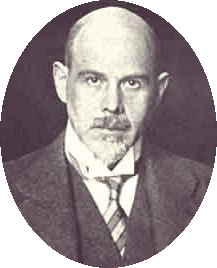Luis Puenzo's 1985 film, "The Official Story," tells the tale of Alicia, a conservative high school history teacher and wife of a wealthy business or government functionary. Alicia attends a high school reunion where a former classmate remarks that another acquaintance raised nothing but "subversives". Someone asks, "how do you know they were?" The woman replies, "they went to prison, they must have done something!" After the reunion, Alicia's high school friend Anna, recently returned after seven years abroad, reveals that she was held in captivity and tortured for 36 days because her ex-husband was "a subversive".
After this encounter Alicia gradually comes to believe her adopted daughter is the child of someone murdered in captivity by Argentina's military dictatorship. Worse still, she suspects her husband knowingly purchased the child and may have had a hand in dictatorship's activities. Alicia's life begins to unravel at every seam.
Early in the film Alicia tells her students "no one can live without memory, and history is the memory of a people." Later one of her students shouts at her "history is written by murderers!" She reprimands him for indiscipline, and the next day arrives to find someone has covered the classroom bulletin board with news reports about corruption, scandal, disappearances, murders. In conversation with a fellow teacher afterward, as she unwittingly drives him to a demonstration, Alicia asks if what the students say can really be true. The other teacher, Benitez, incensed at her doubt, angrily demands "why should you care? why is it your problem?" As he collects his things from the car he adds, "It's easier to believe it's impossible, isn't it? Because if it's possible that would require complicity."
This conversation will someday be had about - or, more accurately, is now being had in places left outside of the official stories of the world and which as such not is likely to be recorded except within engaged fictions in the future - the present actions of the murderers and robber barons bound up with the triune god of state-capital-spectacle today. No one can live without memory, but what memory? Some can not live with certain memories, not least the memories of their atrocities. And so they seek to produce a different memory, using techniques including distortion, falsification, nontransparent criteria for selection, distraction, and a host of categories - criminal, subversive, insane, homeland etc - used to say, should atrocities come to light, that these acts were for the best and were, at worst, unpleasantries forced upon the noble perpetrators by misfortune or by less humans. It is in this sense that Walter Benjamin wrote "even the dead will not be safe from the enemy if he wins. And this enemy has not ceased to be victorious."
Along these same lines one should read experiences like that of the
Edelweiss Pirates (
via), a youth group in Germany who fought with the nazis in the second world war, and several of whom were executed by the Gestapo. As of 2004, the group were still considered criminals. Some have argued that they be reconfigured as resistance fighters. Jennifer Macey writes, "The rehabilitation of the Edelweiss pirates has once again touched upon the sense of collective post war guilt in Germany. While many argue that it’s important to regain a stronger sense of self consciousness by acknowledging that there was a resistance against the Nazis, others caution against a tendency to focus on those exceptions at the risk of forgetting the greater proportion of the population who did nothing."
This is of course a false opposition, that between complicity and resistance, and one that appears most within a nationalist framework: if the debate is over the national consciousness of Germany then let the prevailing attitude be one of guilt, that is far better than having resistance fighters be made use of by the state. But in a remembering that has no loyalty to state, capital, and spectacle, this opposition falls apart and offers potential resources for dismantling the present.
No one can live without memory. And yet, living is always living in a certain way. A certain way of living requires a certain type of memory. Changing that way of living is not dependent upon a different memory, but a different memory may be a tool for aiding that change. As Nico von Glasow, director of a film about the Edelweiss pirates writes, "I wanted to know why I had not heard about them and I asked my friend Jean Jülich and he said something very interesting. He said that if there is one hero in the country then the rest of the country could say they knew nothing about what was going on. But if there is one hero on every street, then it looks bad for the rest of the street."
Along these same lines, Benjamin praised the materialist historian who
"will have the gift of fanning the spark of hope in the past," which requires precisely a sensitivity to both complicity and resistance, posing the kinds of problems for the present that Jülich, himself a surviving member of the Edelweiss Pirates, so ably describes. Just as importantly, Benjamin continues "if one asks with whom the adherents of historicism actually empathize. The answer is inevitable: with the victor. And all rulers are the heirs of those who conquered before them. Hence, empathy with the victor invariably benefits the rulers. Historical materialists know what that means. Whoever has emerged victorious participates to this day in the triumphal procession in which the present rulers step over those who are lying prostrate. According to traditional practice, the spoils are carried along in the procession. They are called cultural treasures". Even more, they are oftentimes the very categories by which history is written, which serve as safeguards to defend that history from attack.
Of course, those neglected or repudiated by the historian who writes for the victors - the subversive, the criminal - should not be simply and uncritically valorized. There are, after all, varying degrees of victory. The victors in conflicts of succession within parties and unions, for example, have themselves had to step over some who were rendered prostrate, and these prostrated were not always the class enemy. A simple celebration of the so-called underside of history, in the spirit of 'the enemy of my enemy is my friend,' does not help in a critical evaluation of the history of working class movements.
Nevertheless, those written out of history or written into it as enemies to be remembered only as forgettable or one-dimensional (a flattening that is itself a form of forgetting) must be the point of departure for critical history. This history must start from a relationship between the past and this present that needs abolishing. This history's best results will shatter elements of prevailing history into shards like broken glass that cut all those who try to appropriate them. The soft hands of the bourgeousie will then be less likely to be able take hold, though they will of course try. Failing that, they will turn, as always, to attempts at distraction.



























